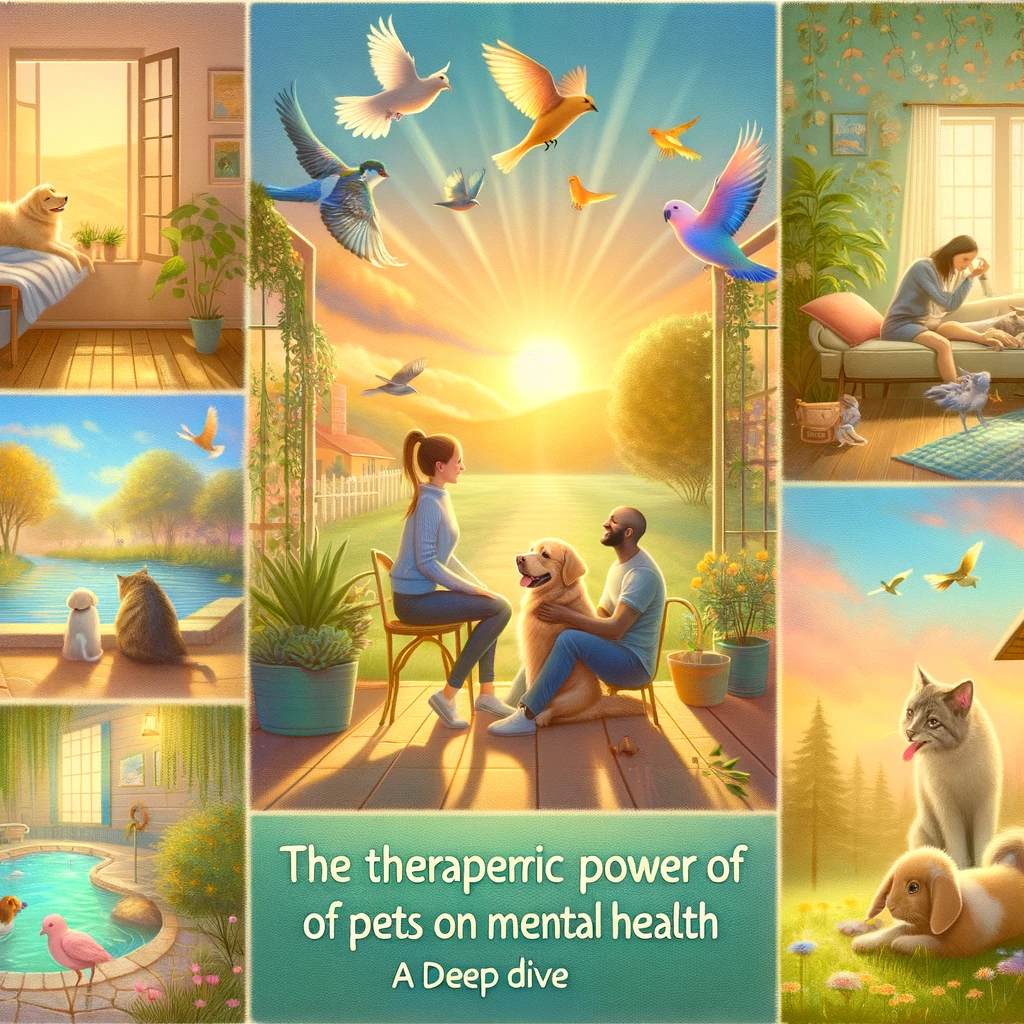The Therapeutic Power of Pets on Mental Health: A Deep Dive

In an age when psychiatry receives adequate attention, the therapeutic role of pets in promoting psychological well-being is of great interest to mental health professionals This advanced insight explores the subtle ways in which pets helps improve mental health s the light.
A Pillar of Unwavering Support and Companionship
The unique bond between humans and pets is built on unconditional love and unwavering support. Pets, from common companions like dogs and cats to unconventional choices like reptiles and birds, always provide a place of comfort for many This form of companionship is especially valuable in emotional turmoil times, and provides a sense of security and acceptance without judgment or expectation rthanasya as an important factor, and often leads to significant improvements in mental health outcomes.
Scientific Insights into Stress Reduction and Emotional Well-being
Bonding between humans and pets stimulates physiological behaviors beneficial for mental health. Animal involvement has been shown to increase levels of oxytocin, a hormone linked to emotional bonding and stress relief, as well as reducing levels of the stress marker cortisol. The simple act of petting a cat or dog can trigger a sense of calm and reduce anxiety, a practice supported by many studies, including research published in the journal of Psychology Research that emphasizes the association between pet ownership and stress-reducing biomarkers along with.
Fostering Routine, Physical Activity, and Purpose
Pet care needs require a structured daily routine, including diet, exercise and grooming. This program can be very beneficial for individuals with depression and anxiety, giving them a sense of responsibility and purpose. Also, pets, especially dogs, need exercise, which is a well-documented mood booster. Regular walking and playtime not only promotes physical health but also acts as a treatment for the sedentary lifestyle associated with depressive conditions
The Role of Pets in Socialization and Community Engagement
Pets often act as social lubricant, facilitating human interaction. For individuals who face challenges in social situations, pets can provide a shared joy that facilitates conversation and communication. This aspect of pet ownership can provide a supportive community, providing social cohesion and a way to prevent loneliness. Additionally, pets can be particularly useful for children and adolescents, teaching empathy, responsibility and life skills through care and direct contact
Emotional Support Animals (ESAs) and Their Therapeutic Applications
Recognition of the therapeutic value of pets has led to the formal inclusion of emotional support animals (ESAs) in mental health treatment programs ESAs are prescribed by mental health professionals to provide comfort and support for individuals with psychological disorders. Unlike service animals, ESAs are not trained for specific tasks but are recognized for their inherent ability to alleviate symptoms of mental health conditions such as anxiety, depression and PTSD This recognition as a treatment for their involvement for the pet confirms the developing understanding of mental health care.
Conclusion: Integrating Pets into Mental Health Strategies
The relationship between pets and mental health is multi-faceted, with benefits relating to emotional, mental and physical well-being. As the conversation around mental health continues to evolve, the role of pets in supporting mental health is proving to be important and changing. Whether by providing unconditional love, organizing daily care, or facilitating companionship, pets are invaluable in aiding psychological resilience and emotional healing in the floor
Integrating pets into mental health strategies represents a holistic approach, which embraces the power of partnership in therapy It invites a broader perspective on mental health processes, and promotes therapeutic a it does not encourage the integration of traditional therapies. Moving forward, the relationship between people and their pets is a testament to the complex interactions of nature, animals and human health, providing insight and an opportunity to build a mentally resilient society
Visit the website for more stories on pets